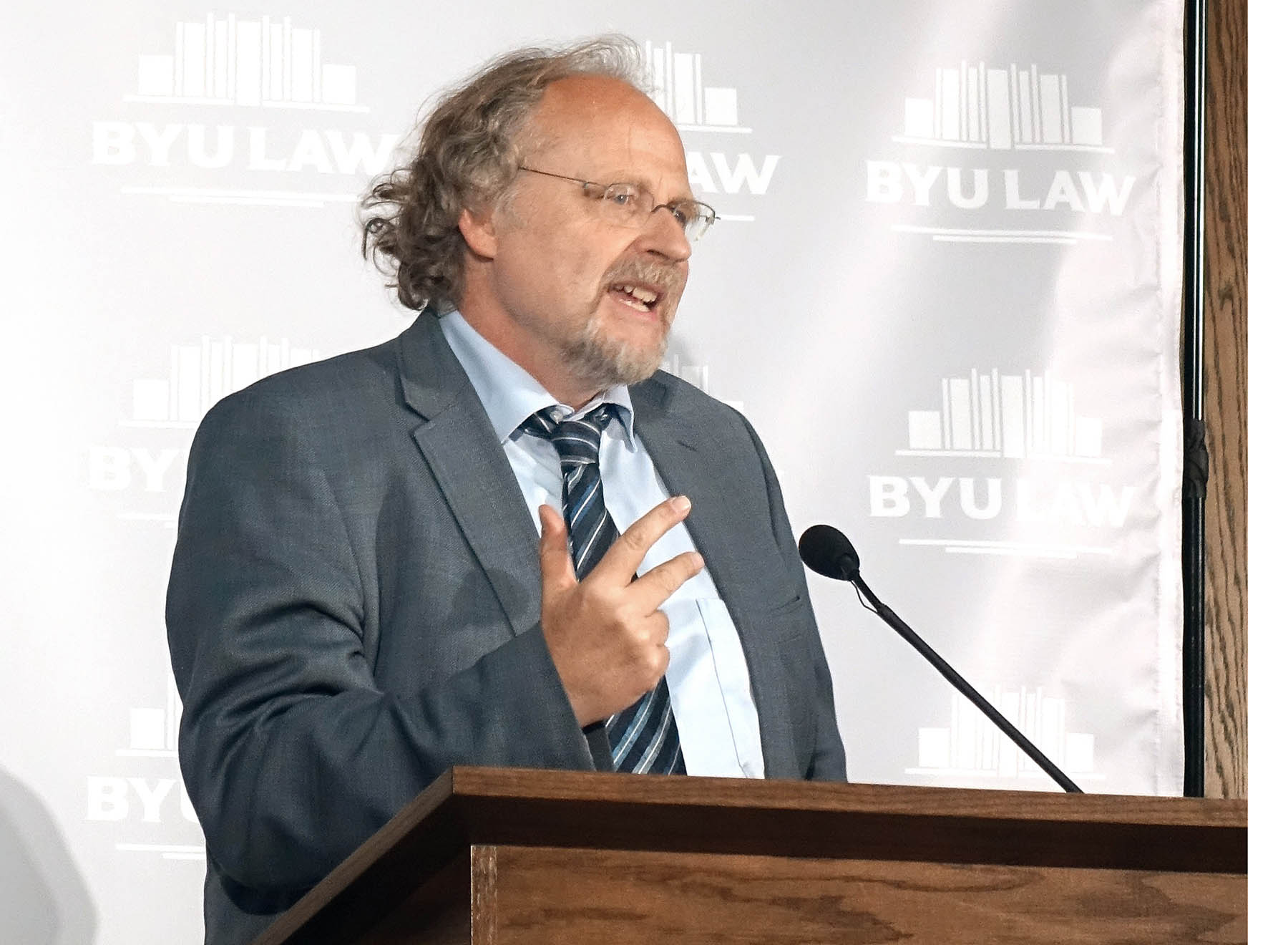





Heiner Bielefeldt; Photo by Page Johnson
by Blythe Shupe
The Keynote speaker for the 23rd Annual International Law and Religion Symposium was Heiner Bielefeldt, United Nations Special Rapporteur on Freedom of Religion or Belief. Professor Bielefeldt was also the recipient of the International Center for Law and Religion Studies Distinguished Service Award.
Professor Bielefeldt spoke of Freedom of Religion or Belief (FoRB)as a highly provocative right. It brings together human rights and religion. As a result, FoRB can be provocative to governments, religious communities, and societies.
While Article 18 of the Universal Declaration of Human Rights establishes the right to freedom of thought and religion, it is a challenge for some governments. The state may attempt to define legitimate religious options, require religions to register or to work within the limits of law. Governments may seek to limit FoRB to protect existing hegemony, others under the auspices of protecting national identity, or in more authoritarian governments, to restrict freedom.
In religious communities, equality for all religions means that all religious communities benefit, including rivals. This may trigger uneasiness. And the human rights component may be uncomfortable for some religious people if not correctly understood. “Legal protections are not given to religious entities but to human beings, empowering human beings to stand up for their belief and organize their lives in accordance with their beliefs, “said Professor Bielefeldt. Using the term choice, in the legal sense, protects the space in which religious beliefs can unfold. Law can prevent forced marriages, forced conversions, coercion, etc.
In Western societies, freedom is taken for granted so the freedom component of FoRB does not threaten these societies. As result, some societies tend to ask if religion has a serious role in a modern society. Should FoRB prevail or human rights? “Freedom of religion or belief by implication is removed from the list of legitimate human rights,” said Professor Bielefeldt. A religious person is seen “not to be free but to be faithful” which creates a dichotomy between being a free person and having a serious conviction. Professor Bielefeldt said, “This betrays a shallow understanding of freedom and a total misunderstanding of the multi-dimensional aspects of human freedom.” If in Western societies to be religious is not to be free but to faithful, we are losing the sense of why freedom is important. FoRB should not be reduced to a life style.
In summary, Professor Bielefeldt said that FoRB is provocative in a healthy and necessary way. For governments, it is a reminder that respect for human rights lies at the heart of democracy and rule of law. For religious communities, it is a reminder that authentic belief is free belief and is a priority for minorities and majorities. For societies, it is a reminder that FoRB is not a life style matter but that “freedom requires real convictions, not just faith”.
Professor Bielefeldt closed by saying, “Freedom of Religion or Belief is a surprisingly provocative right. So let us be provoked.”
